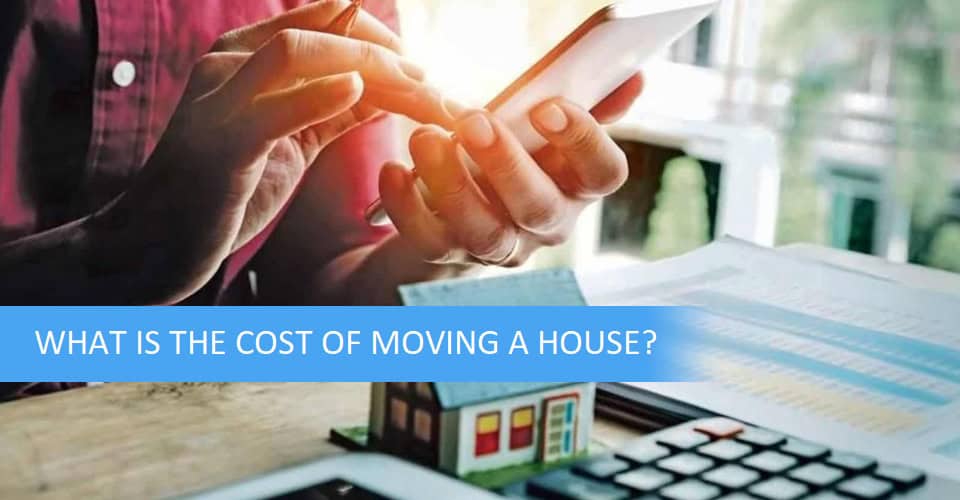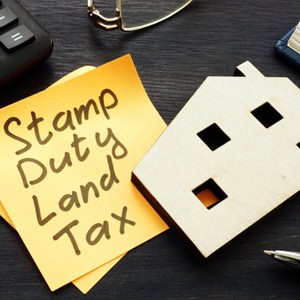10 Costs of Moving a House That You Need to Watch Out

Whether you’re buying for the first time or moving to a new home, you may need to move house. An important consideration is a cost, and with things like legal fees and Stamp Duty, it adds up. All things considered, what is the cost of moving a house?
The average cost of moving a house in the UK is £8,885. This cost is made up of mortgage costs, estate agent costs (if you’re selling), various legal costs and taxes, and costs on the day such as removal costs, storage costs, and cleaning costs. There are ways to save on some of these costs.
Depending on where you’re moving to, the costs of moving a house can vary considerably. We’ll break down the costs involved and show you ways to save money when you move.
The Cost Of Moving House: What You Can Expect To Pay
The average cost of moving a house in the UK is £8,885, although this can vary considerably depending on your location.
1. Conveyancing Costs
 Conveyancing costs are what you pay a solicitor to act on your behalf when buying or selling a property.
Conveyancing costs are what you pay a solicitor to act on your behalf when buying or selling a property.
They will cost, on average, between £500 and £1,500 (including 20% VAT). If you’re moving from one house to another, try negotiating a package deal with your solicitor to help with buying and selling.
Solicitors will also charge you a search fee of £350 to £800, depending on the location of your property. These searches check whether there are local plans and possible problems.
Arranging conveyancing in plenty of time helps to save costs, as the process can take 8 to 12 weeks from instructing the solicitor to completion.
2. Estate Agent’s Fees
Agents work on commission. They charge sellers between 0.75% and 3% of the agreed selling price of your house, plus 20% VAT.
If you work through a sole agent, you will pay a lower commission, but you may find that fewer people view your house. Don’t be afraid to negotiate with agents, as most are flexible.
3. Stamp Duty
 Known variously as Stamp Duty Land Tax in England and Northern Ireland, Land and Buildings Transaction Tax in Scotland, and Land Transaction Tax in Wales, Stamp Duty is a tax on buying a home.
Known variously as Stamp Duty Land Tax in England and Northern Ireland, Land and Buildings Transaction Tax in Scotland, and Land Transaction Tax in Wales, Stamp Duty is a tax on buying a home.
Stamp Duty is calculated on the value of the property when fully paid off. It cannot be part of your mortgage or loan.
Rates vary between the different countries. The table below gives the rates for each portion of the property price for people who’ve owned property before. You only pay a given rate for that part of the property price falling within each band.
| Property Price Bracket | Stamp Duty Rate in England |
| £0-£125,000 | No Stamp Duty payable |
| £125,001-£250,000 | 2% |
| £250,001-£925,000 | 5% |
| £925,001-£1,500,000 | 10% |
| Over £1,500,000 | 12% |
If you are a first-time buyer, you pay no Stamp Duty on a property up to £300,000. Between £300,001 and £500,000, you will have to pay 5% tax. If the property costs over £500,000, no relief applies, and you will pay as per the table above.
4. Deposit Cost
The deposit is that percentage of the price you pay upfront, i. e. that you don’t borrow as a mortgage. A higher deposit means a smaller mortgage and cheaper mortgage repayments, so if you can raise funds, aim for a higher deposit.
The cost ranges between 10 and 15% of the property value, although 95% of mortgages are available that only require a 5% deposit. However, these generally have a higher interest rate, and you will pay much more in the long run.
5. Valuation Fee
A mortgage lender will evaluate the property you’re buying to assess its worth. These evaluations usually cost between £150 and £300 but can be as much as £1500. These valuations are far from thorough; get an independent valuation when you instruct the independent survey (see below).
6. Surveyor’s Fee
 Before the sale goes through, have your new property assessed by a surveyor to check for any structural problems.
Before the sale goes through, have your new property assessed by a surveyor to check for any structural problems.
Three types of surveys exist, and you will pay more for a more comprehensive survey. Paying more for a more comprehensive survey could save you money in the long run, as you will be aware of repairs that you will need to make.
Such awareness allows you to back out of the deal, or at the very least, renegotiate.
A survey will cost you anything between £290 and £1,390, depending not only on the type of survey but also on the property’s location, size, and value.
Related Article: Comprehensive Guide to Home Surveys
7. Mortgage Fees
You may need to pay arrangement fees for setting up the loan, varying from a few hundred pounds to 1% of the mortgage.
You will also need to pay the mortgage broker, whether a once-off fee, repeated billings, or a commission from the lender. Be clear on how you will be charged.
8. Electronic Money Transfer Fee
You will have to cover the lender’s cost to transfer the mortgage money to the solicitor. Expect to pay between £40 and £50.
9. Land Registry Fee
Depending on the property’s purchase price, you will pay £20 to £910 for the Land Registry fee.
10. Removal Costs
 You could hire a self-drive van to move your belongings, as long as you have helpers to lend a hand with the carting. Light removals will probably be cheaper if you use a man with a van service than a removals company.
You could hire a self-drive van to move your belongings, as long as you have helpers to lend a hand with the carting. Light removals will probably be cheaper if you use a man with a van service than a removals company.
However, if you are transporting a large quantity of furniture and valuables, you will need a professional moving service. The average removal cost for a house in the UK is £1,761, although there may be additional charges.
The amount of stuff you have affects how much you will pay. Save money by ruthlessly culling your possessions. If you haven’t used something in the previous two years, you can probably let it go.
The distance you are moving also affects how much you will pay, with longer moves costing more. If moving overseas, you will have additional shipping container costs.
When you choose to move will also affect the cost. You will pay more at weekends and month-end. Try to avoid these times, and move during an off-peak season such as autumn to save money.
If you get the removal company to pack for you, you will pay more, as you are paying for more hours of the removal company time and the number of crew members. Doing your own packing helps to save costs. The same applies to the dismantling and reassembling of furniture.
Contents insurance for your belongings should be another part of the cost. Ensure you use a remover affiliated with the Removal Ombudsman.
Additional Costs When Moving House
 Have your post redirected to prevent identity theft fraud or suffering late-payment charges from unpaid bills. Prices start from £33.99. You will have to pay more if there are multiple last names in the household, or you want the post redirected for a longer period.
Have your post redirected to prevent identity theft fraud or suffering late-payment charges from unpaid bills. Prices start from £33.99. You will have to pay more if there are multiple last names in the household, or you want the post redirected for a longer period.
You may have to pay a professional cleaning service for a deep clean if you’re currently renting. Check what your tenancy agreement says, and document what the cleaners have done. If hiring your own service, get a receipt.
You may also need to buy new furniture, which can add to the cost of the move.
If there is a delay between your leaving your current residence and taking up residence in your new house, you will have to pay for the temporary storage of your belongings. Expect to pay £140 per month or more, depending on how much stuff you need to store.
Related article: Is It Better to Move House or Extend? (Tips from homeowners)
Conclusion
Numerous costs are involved in moving a house in the UK, with mortgage costs, various legal costs, Stamp Duty and the Land Registry fee, and costs such as removal costs and temporary storage costs all contributing to the average cost of £8,885.
If you want to read more articles like this, visit us on our website at Transport Executive.
References
- https://www.idealhome.co.uk/property-advice/how-much-does-it-cost-to-move-house-cost-of-moving-house-61776
- https://www.halifax.co.uk/mortgages/help-and-advice/moving-house-costs.html
- https://www.barclays.co.uk/mortgages/guides/real-cost-of-moving/#10
- https://www.which.co.uk/news/2020/09/exclusive-the-cost-of-moving-house-to-benefit-from-the-stamp-duty-cut/
- https://www.which.co.uk/news/2021/10/cost-of-moving-house-hits-record-high-as-stamp-duty-holiday-ends/

